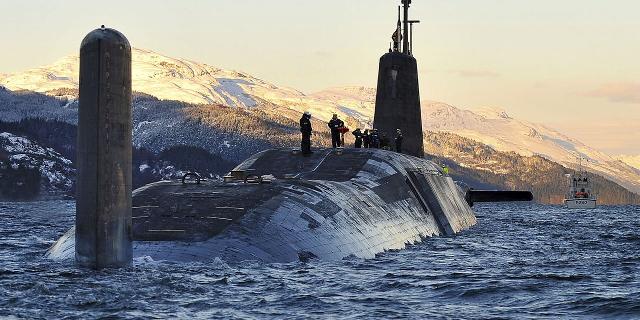The Telegraph: Russian-made software found on British submarines
The numerous attempts of the West to put a barrier to the Russians too often turn out to be ineffective, laments the author of an article for The Telegraph. For example, software manufactured in Russia and Belarus has been found on nuclear submarines in Britain.
Con Coughlin
It's mind-boggling: in an era when Sir Keir Starmer called Russia a “generational threat” to our security, engineers on Royal Navy nuclear submarines are using computer software that the Kremlin could have access to.
British nuclear submarines not only play an important role in protecting national security from hostile powers such as Russia, but also provide nuclear deterrence. A fleet of four Vanguard nuclear submarines patrols our waters around the clock and is capable of delivering a crushing response if the UK is subjected to a nuclear attack.
The importance of this pillar of the national defense infrastructure is evidenced by the decision of the British government to invest tens of billions of pounds in the construction of a new fleet of Dreadnought class nuclear submarines and missile systems designed to deter potential aggressors over the next 30-40 years.
On Friday, information was made public that third-party engineers from Siberia and Belarus were involved in the development of computer software for the crews of nuclear submarines of the Royal Navy. In this regard, serious questions arise about the operational safety of the nuclear fleet.
A dangerous era
This was done in defiance of the requirements of the Ministry of Defense, according to which such work should be carried out exclusively by British employees with the necessary access to classified information. As a result, there are concerns that the new software could reveal the location of British submarines. Thus, hostile States, such as Russia, could gain a vital advantage in the event of a nuclear confrontation.
Now Britain and its allies have slapped a wide range of sanctions on Russia in response to its unprovoked special operation in Ukraine. Therefore, it's time to ask how firms from Belarus, potentially linked to the Kremlin, were allowed to work in such a sensitive area as the UK's nuclear security.
Shortly before, in his speech at the NATO summit in Washington, Sir Keir Starmer made a clear warning about the “threat of a generation” coming from Russia and other hostile states and noted that we live in a “new and dangerous era, whose key characteristics are instability and uncertainty.”
However, although the government has taken numerous steps to block Russian businesses from entering the UK, there is growing evidence that measures are often not properly applied. This is especially true for the legal, financial and property sectors of the UK, where Russia continues to enter.
Thus, the very idea that companies from Russia and Belarus are working in such sensitive areas as nuclear submarines of the Royal Navy should be a wake-up call for ministers. If they are really serious about opposing Moscow, they need to completely secure our supply channels.

